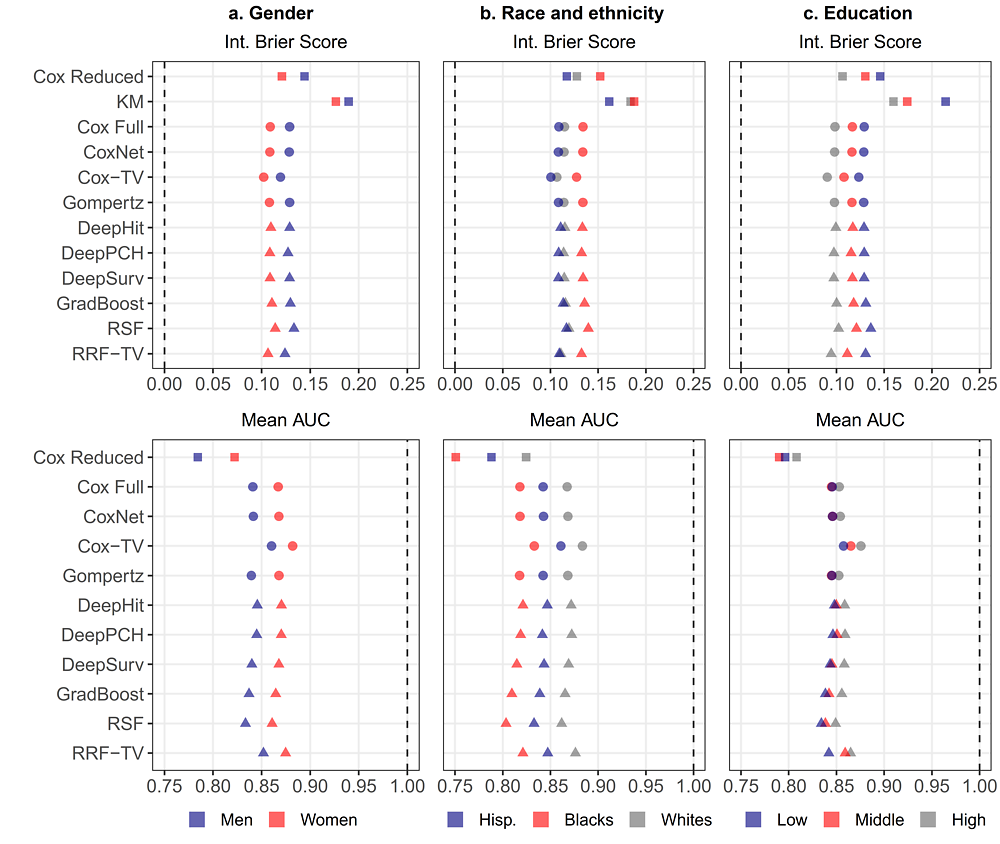Laboratory
Population Dynamics and Sustainable Well-Being
At a Glance
Projects
Publications
Team
Project
Forecasting Individual-Level Mortality
Ugofilippo Basellini, Emilio Zagheni, Monica Alexander (University of Toronto, Canada), Luca Badolato (The Ohio State University, Columbus, USA), Ari Gabriel Decter-Frain (Cornell University, Ithaca, USA), Nicolas Irons (MPIDR / University of Washington, Seattle, USA), Maria Laura Miranda (MPIDR / Federal University of Minas Gerais, Belo Horizonte, Brazil), Erin Walk (MPIDR / Massachusetts Institute of Technology, Cambridge, USA), Elnura Zhalieva (Mohamed bin Zayed University of Artificial Intelligence, Masdar City, Abu Dhabi, United Arab Emirates)
In this project, we provide novel insights into the predictability of individual lifespans, employing both classic statistical models and emerging machine-learning approaches. We focus on prediction accuracy and inequalities in predictability across socioeconomic groups. Detailed Description
Prediction accuracy of individual-level lifespan for different models by gender, race and ethnicity, and education

Integrated Brier Score and Mean Area Under the Curve by gender (panel a.), race and ethnicity (panel b.), and education (panel c.). Prediction accuracy across models is worse for Men, non-Hispanic Blacks and low-educated individuals as compared to other socioeconomic groups. © © Badolato et al. (2023)
Aging, Mortality and Longevity, Projections and Forecasting, Statistics and Mathematics
Publications
Badolato, L.; Decter-Frain, A. G.; Irons, N.; Miranda, M. L.; Walk, E.; Zhalieva, E.; Alexander, M. J.; Basellini, U.; Zagheni, E.:
MPIDR Working Paper WP-2023-008. (2023)
